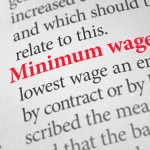Needing Carer support in your own home can be a challenging and difficult decision to come to. You then have to find someone that fits with your needs and who’s personality is right for you. There are a million and one things to think about, and how to pay them is on the list. The blog below will help you work out how this person is defined as a worker, and whether you need to run payroll for them.
When employing a Carer, one of the first things you need to establish is whether the person working is doing so as an employee, or as a self-employed worker. The list below will help you identify which way the worker is engaged:
Generally, a person should be considered as employed if:
- they provide care for only one person, or if they do have another job, it’s completely different from the Care work they undertake
- they’re required to work regularly unless they’re on leave, e.g. holiday, sick leave or maternity leave
- they’re required to do a minimum number of hours and expect to be paid for time worked
- there are defined activities and they are managed by the person receiving care or a nominated person
- they can’t send someone else to do their work
- they get paid holiday
- they’re entitled to contractual or Statutory Sick Pay, and maternity or paternity pay
- they are required to be enrolled in a pension scheme
- there are disciplinary and grievance procedures applied to them
- they work at an address specified by the employer
- their contract sets out redundancy procedures
- the business provides the materials, tools and equipment for their work
- their contract, statement of terms and conditions or offer letter (which can be described as an ‘employment contract’) uses terms like ‘employer’ and ‘employee’
A person will be considered self-employed if:
- they can work for more than one client
- they use their own money to buy business assets, cover running costs, and provide tools and equipment for their work
- they can hire someone else to do the work
- they can decide what work they do and when, where or how to do it
- they’re in business for themselves, are responsible for the success or failure of their business and can make a loss or a profit
- they put in bids or give quotes to get work
- they submit invoices for the work they’ve done
- they don’t get holiday or sick pay when they’re not working
- they operate under a contract (sometimes known as a ‘contract for services’ or ‘consultancy agreement’) that uses terms like ‘self-employed’, ‘consultant’ or an ‘independent contractor’
If you identify that they are self-employed, they should be paid and are responsible for payment of their own tax and national insurance via a self-assessment tax return at the end of the year.
As an employee, they should have tax and NI deducted from their pay, and receive a payslip. You will be required to run a payroll and PayrollAbility can help and support you with this.
Call us today on 01384 92 90 20 or complete the contact form to arrange a call back to discuss how we can help you.





